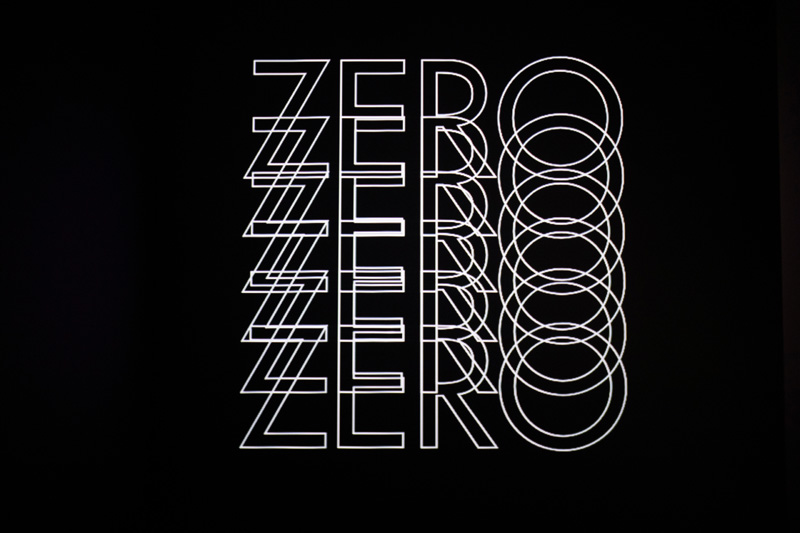The troublesome zero

The Stanford Encyclopedia of Philosophy has an article about nothing/zero which is about 14,500 words (28 pages) long. Much ado about nothing, indeed…. The article studies the paradox that “nothing” or rather its concept, exists.
Zero has been a difficult idea in the past. It existed in many ancient spoken languages, but even so, many languages never developed a word for it.
1770 BC, the Egyptians had a written symbol for zero in accounting texts.
The first written use of zero in the old Indian language, Sanskrit, seems to be 2-300 BC, although the written language goes back to 1500 BC. Another very early explicit zero is part of the narrative on a Hindu plaque dating from 876 AD describing offerings to a temple.
It looks like zero was created well after the numbers themselves.
In Japanese a word for “nothing at all”, rather like the concept of zero, is “zenzen”. So in the Buddhist Zen religion what is the answer to their tongue-in-cheek riddle “what is half of zero?” The answer is probably “zen”!
In the West, zero became universally used only about a thousand years ago. Zero was sometimes regarded as the creation of the Devil (hmm. A nothingness?), and for a time, several hundred years ago, edicts were issued in Florence, Italy, that forbade the use of the number zero and the new “Arabic” number system that ushered it in.
But now (combining “none” and “zero” search strings) at 7th September 2022, Google reports 9.31 Billion occurrences of the word “zero”, which is larger than the 9.12 billion for “six”, 6.04 for “seven”, 3.58 for “eight” and 3.11 for “nine”. In contrast there are 25.27 Billion for “one” (apparently an artificial upper cutoff point for Google during the search) and 21.46 Billion for “two” (respectively 13.99, 10.95, 10.7 for 3, 4 and 5). Zero is treated like a real number.
Even many mathematicians in the past did not like the idea of zero. A Frenchman, whose identity seems lost (or rather, about whom we seem to have zero detail) writing in the fifteenth century, expressed the popular view well: 'Just as the rag doll wanted to be an eagle, the donkey a lion and the monkey a queen, the zero put on airs and pretended to be a digit.’
Let us say we have two oranges on a plate. Take them away. There are zero oranges on the plate. But there are also zero oranges in almost all other places on earth, and these “zero orange places” may overlap with those places on earth for zero bananas, zero pencils, zero people, zero planets, zero galaxies... It feels very strange.
Zero seems very different to whole numbers. Conventional mathematics allows dividing any whole number by another, but does not allow you to divide by zero.
Zero has odd properties, but mathematicians say it is even! Zero is an even number according to the laws of mathematics, because it is divisible by 2 with no remainder. In fact, there is an argument that zero is the most even number of all! A number which is "doubly even" can be divided by two and then divided by two again with no remainder. Zero can be divided by two forever and the result will always be a whole number - zero.
0 is neither positive nor negative, (but some mathematical systems argue it is both positive and negative).
The number 0 may or may not be considered a natural number, but it is an integer, and in technical mathematical terms it is a “real” number, but that is just a name and definition, and does not mean it is necessarily real.
God really seems to love some forms of zero - us!